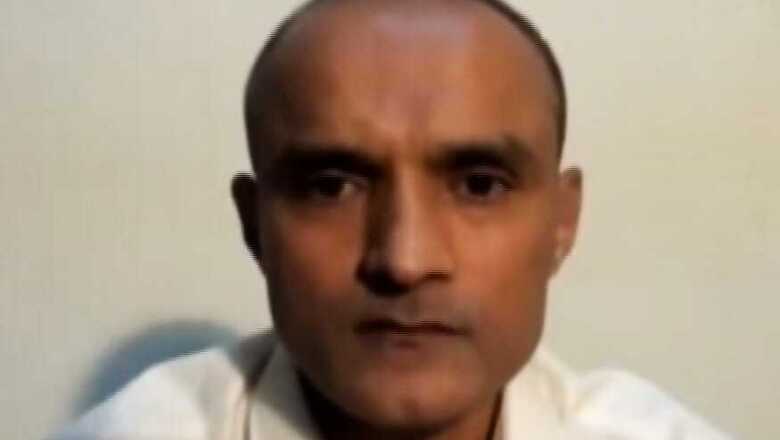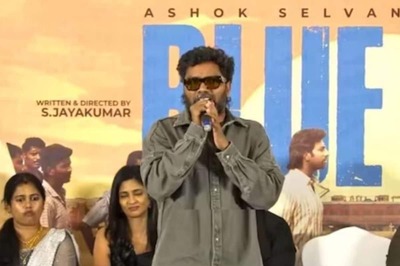
views
New Delhi: India summoned Pakistan High Commissioner Abdul Basit soon after the news of death sentence to Kulbhushan Jadhav by a Pakistan Army Court came in and said it will be regarded a “premeditated murder” because there was no fair trial in the case.
Foreign Secretary of India S Jaishankar issued a demarche to Basit and said, “The proceedings that have led to the sentence against Jadhav are farcical in the absence of any credible evidence against him. It is significant that our High Commission was not even informed that Jadhav was being brought to trial.”
“If this sentence against an Indian citizen, awarded without observing basic norms of law and justice, is carried out, the government and people of India will regard it as a case of premeditated murder.”
Jadhav was awarded death sentence after a shoddy trial by the Field General Court Martial under the Pakistan Army Act 1952. Pakistan has not answered as to why Jadhav, who was arrested on espionage charges, was denied a civilian court trial, and why did Pakistan’s Foreign Policy Chief Sartaj Aziz go back on his words that there was “insufficient evidence” against Jadhav.
Ever since Jadhav was arrested by Pakistan in March 2016, India has repeatedly asked for consular access to Jadhav as per the provisions of the bilateral Consular Access Agreement, but the permission was never granted. On the contrary, the whole process was kept a secret against the international norms. Even at the peak of Cold War, the US and Russia conducted open trials of spies.
“The Government of India, through its High Commission in Islamabad, has repeatedly sought consular access to Jadhav, as provided for by international law. Requests to that effect were formally made 13 times between 25 March 2016 and 31 March 2017. This was not permitted by the Pakistani authorities,” India told Pakistan High Commissioner.
The conviction is travesty of justice as Pakistan Army Courts have been aggressively announcing death sentences without detailed hearings since the last two years, just to appear tough against terrorism.
Pakistan legalised military court trials of terror suspects for a period of two years in January 2015, soon after terrorists killed 144 people, mostly children, at an Army Public School (APS) in Peshawar. Pakistan’s National Assembly amended the constitution in March 2015, allowing military courts to try civilians simply on the basis of terror allegations.
While the Pakistan Army has claimed that Jadhav was given a lawyer to defend himself, India questioned the very legality and authenticity of a secret army trial without any proof of terror charges. The hurried manner in which the death sentence has been announced within months of the trial, defying international laws, is also shocking.
“It appears as if Pakistan wants to destroy the evidence. Why did Sartaj Aziz say there was no evidence against Jadhav? Why was Aziz made to withdraw his words?” asked top sources in Indian government.
India has once again reiterated its position that Jadhav was kidnapped last year from Iran, and has asked Pakistan to explain how a kidnapped individual landed in their country.
According to Section 105 of the Pakistan Army Act, when a person is awarded death sentence, there must be an absolute majority of votes. If there is a difference of opinion, the decision goes in favour of the accused. However, there was no such clarity in the case of Jadhav.
Military courts in Pakistan were allowed to extend their jurisdiction for speedy trial of terror cases after the Peshawar school attack through amendments to the Pakistan Army Act 1952. These amendments were met with much debate, but military courts have already weaved themselves into the fabric of Pakistan’s criminal justice system.




















Comments
0 comment